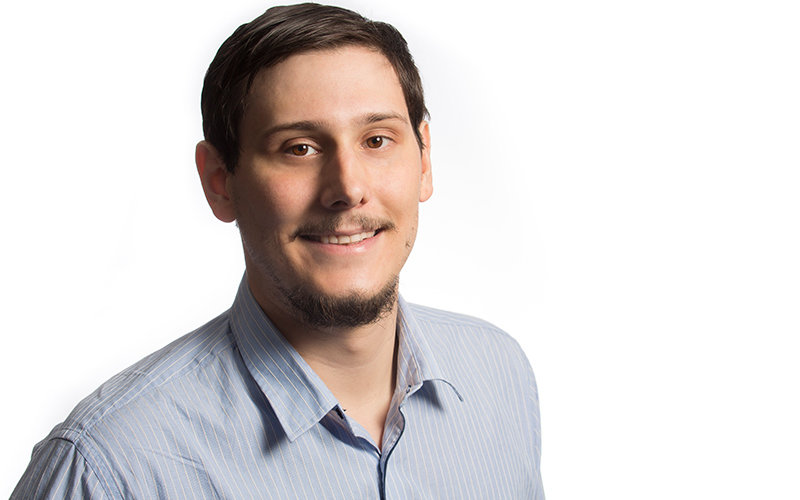
As a teenager, Sam Flanders read Isaac Asimov’s Foundation series of novels and was fascinated by the idea of psychohistory — “a hypothetical academic discipline that predicted human behavior mathematically,” says the assistant professor of economics who joined Cal State Fullerton this fall.
“I also read ‘Freakonomics,’ which showed me that economists pursued these same aspirations, albeit on a much more limited scale.”
Those interests are reflected in Flanders’ bachelor’s degree in mathematics and economics from Knox College and doctorate in economics from the University of North Carolina at Chapel Hill.
What are your research interests and why?
My research focuses on matching theory, the study of how buyers and sellers, workers and firms, schools and students — even romantic couples — form partnerships, and the related field of market design, the study of how to engineer efficient marketplaces. These areas have led to dramatic improvements in a number of markets.
For example, the assignment of medical students to residencies was once a severely dysfunctional market. Residency programs hired residents almost as soon as they entered medical school — far too early to judge their specialty preferences — in order to avoid another hospital snatching up the student first. Now a matching algorithm takes program and student preferences at the end of med school and assigns every resident at once.
What changes do you envision in your field five years from now?
I believe this engineering approach to markets will only become more important as more and more aspects of our lives are mediated by matching platforms like online dating websites, sharing economy apps and job search websites.
My own research has focused on efficiency in online dating platforms, a topic that had previously received little attention, and I’m currently working on empirical research with a new job search app called Blendoor, which does race- and gender-blind job matching. I’ll be studying the extent to which designing a market that withholds demographic information, until later in the hiring process, can prevent discrimination.
How do you engage students in your classes and research?
In the classroom, I like to utilize active learning techniques to engage students. This includes using apps like Poll Everywhere to ask students questions throughout class, breaking students into groups to discuss concepts and solve problems, and using games that simulate economic scenarios and game theoretic models for students to participate in — I’ve coded a number of games that can be played in class using smartphones and allow students to learn about market behavior and game theory by experiencing it themselves.
See the complete list of new tenure-track faculty joining CSUF this fall.